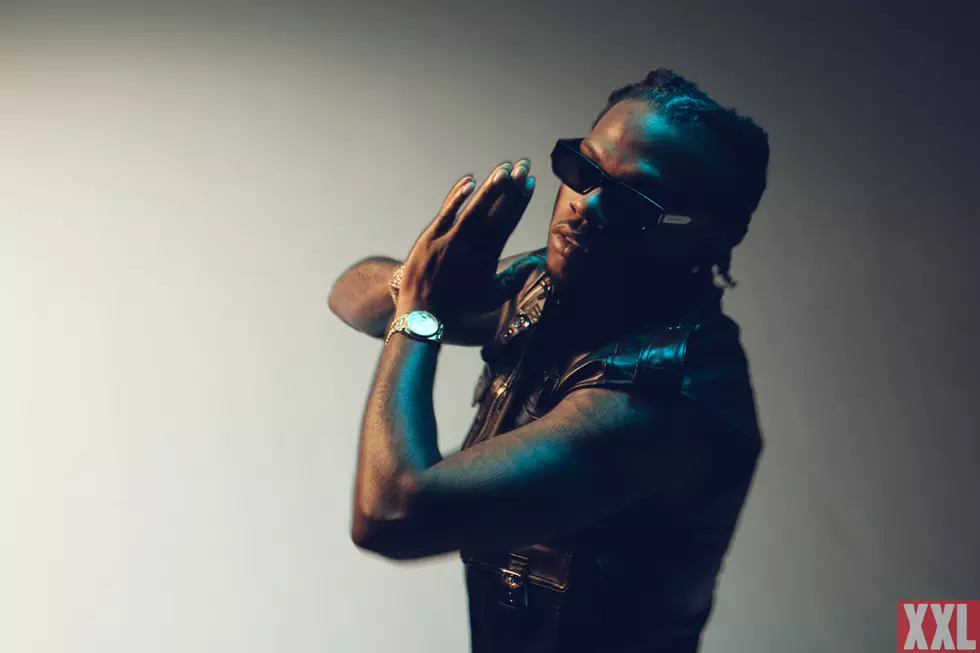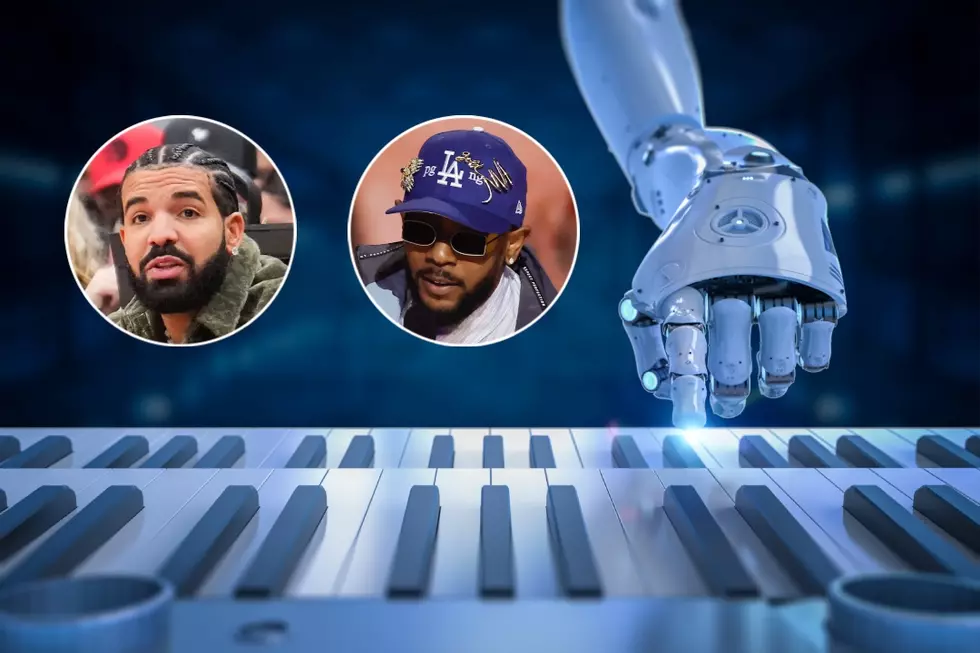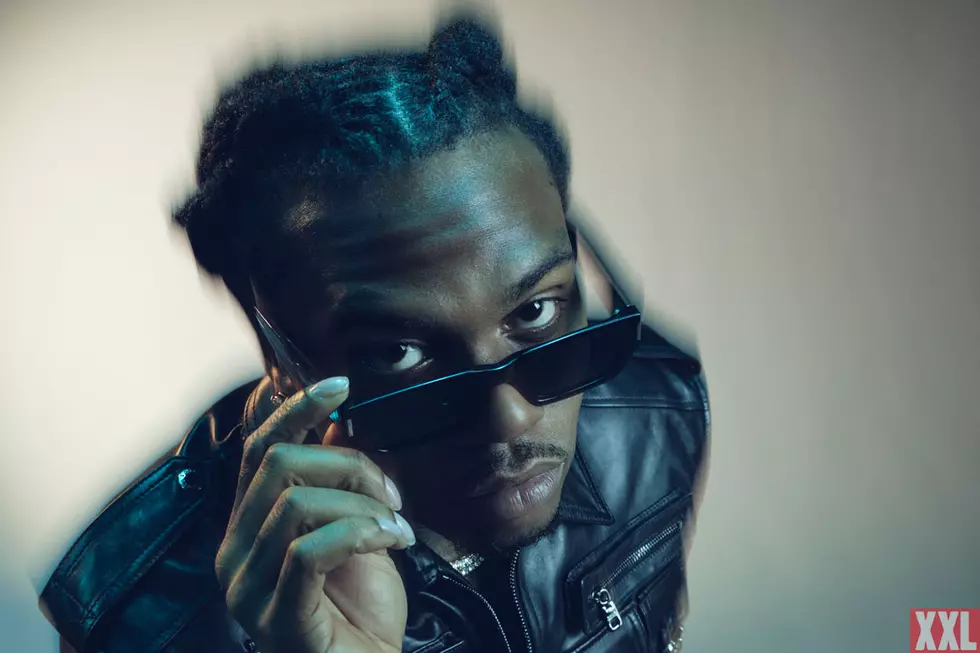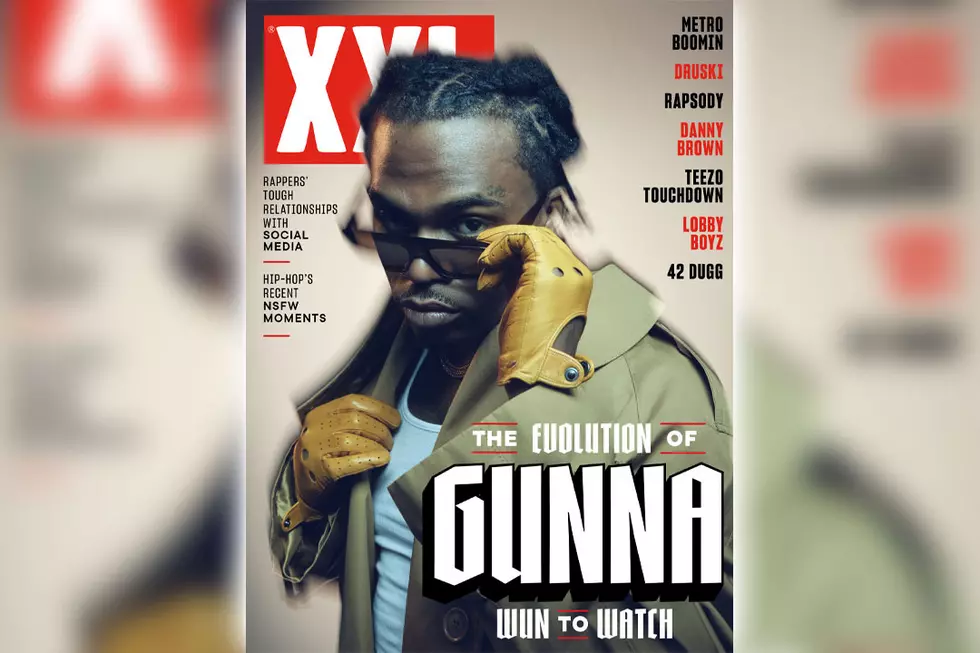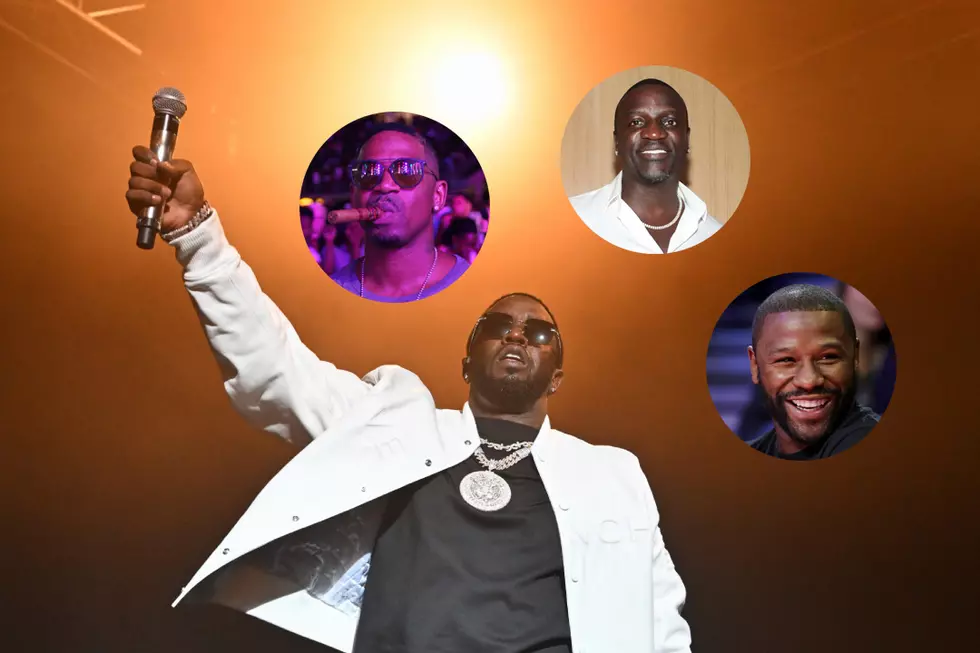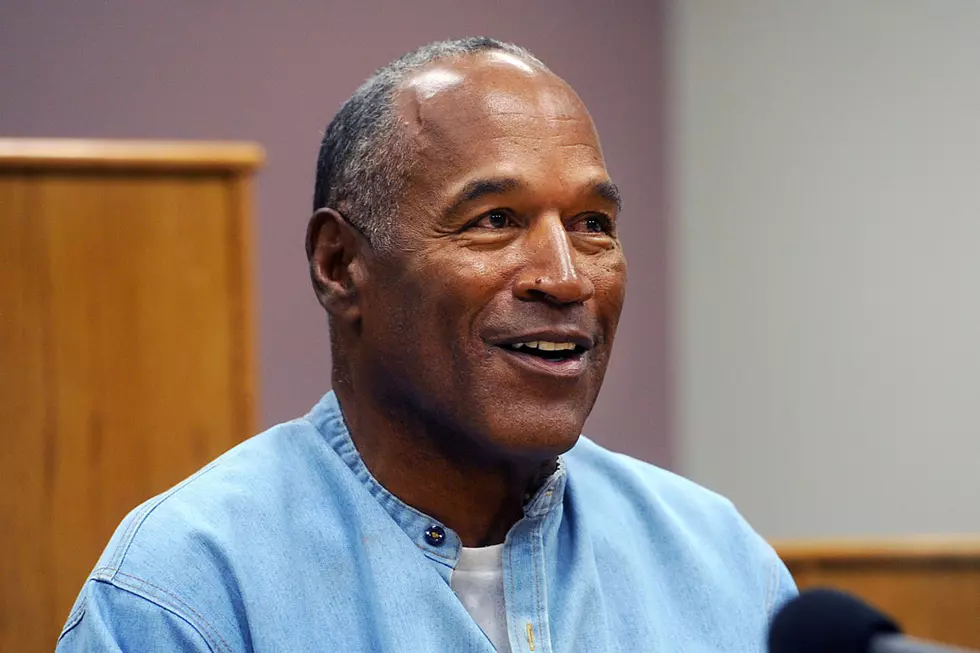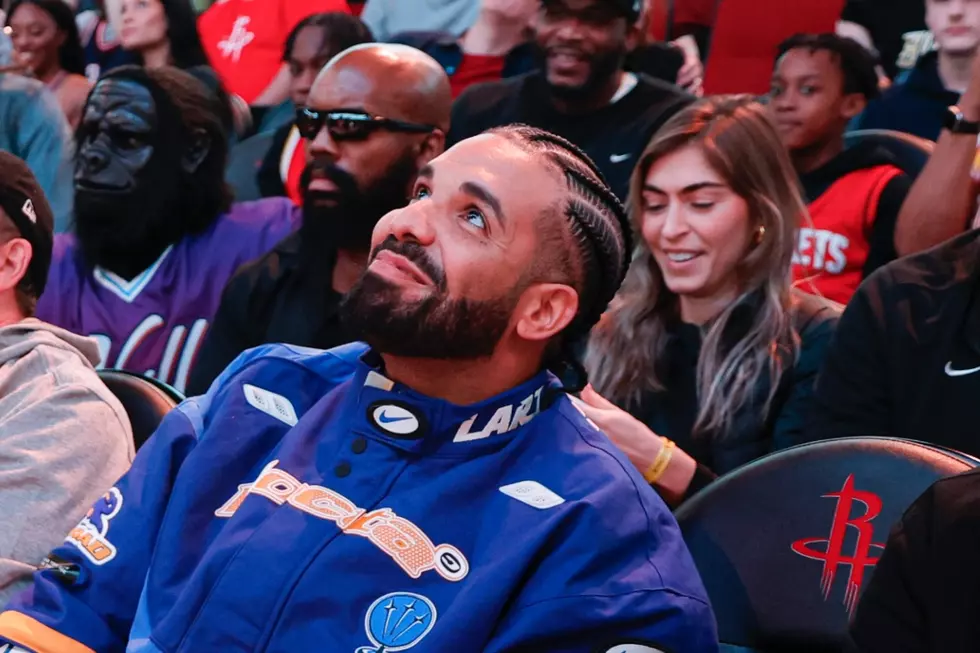
OutKast Revisits ‘Speakerboxxx/The Love Below’ – XXL Issue 151
Holy Grail
Words Dan Rys
Editor’s Note: This story originally appeared in the October/November 2013 issue of XXL Magazine.
When OutKast’s Speakerboxxx/The Love Below dropped 10 years ago on September 23, 2003, no one could have ever predicted the enormity of its success. OutKast had garnered much critical acclaim with the release of their first four LPs, Southernplayalisticadillacmuzik (1994), ATLiens (1996), Aquemini (1998) and Stankonia (2000), but their fifth effort put the Atlanta duo on a whole new level. Built and billed as a double-disc LP, the release included a solo disc helmed by each member: Big Boi’s Speakerboxxx and André 3000’s The Love Below.
The project led with two monster singles, Big’s “The Way You Move” and Dré’s “Hey Ya,” and in its first week, Speakerboxxx/The Love Below debuted at No. 1 on the Billboard Top 200 chart selling over 500,000 copies. The LP won 2004’s Grammy for Album Of The Year and has since become the highest-selling hip-hop album of all time with 11 million copies sold in the U.S., turning André 3000 and Big Boi into international superstars.
But just when the OutKast movement was at its commercial height, it all ended. One glorified and ultimately disappointing movie soundtrack, Idlewild, followed in 2006, and the duo— despite never outwardly or publicly acknowledging it—has been defunct ever since. Rarely have they been seen together, and rumors of them getting back in the studio have so far hit a series of roadblocks. Big Boi has since released two solo LPs while also dabbling in Hollywood. André took a hiatus from rap until 2007 and has released a smattering of material since his return, instead focusing more on acting. He will play Jimi Hendrix in the upcoming biopic All Is By My Side.
Now, a decade after they released their crowning mainstream achievement, and 15 years since Aquemini, Big Boi and Andre 3000 spoke to XXL about the album that took them from critical darlings to global icons. It’s OutKast reunited. —Dan Rys (@danrys)
Big Boi
XXL: What was the goal going into the studio to record Speakerboxxx/The Love Below?
Big Boi: It was basically just giving two sides of the coin; my perspective and Dre’s perspective. Our main goal in making every album is to make the most jammin’ shit on the planet. We just wanted to go through grooves and sounds, one side me, one side him, and now it’s history, it’s in the history books.
Did you have songs going in, or were you writing in the studio?
I had some going in. Our whole thing is, we’re constantly recording, we stay recording. Even when I’m out on the road, like I’m recording right now. Just kicking about the music.
When you went in to the studio, how was it different than some of your other albums?
Just more control on my side—I had a complete vision of what an album could be that was entirely me, and the idea was just to keep it funky, keep it jamming, it’s always bass-heavy. And lyricism, it’s all about lyrics, taking pride in your pen and your pad.
What was your favorite song that came from those sessions?
One of my favorite songs on that album is “Unhappy,” and just working on that for a few days and just jamming it out, it reminded me of a Jim Henson’s Muppets- type of hook—you know, I wrote the hook—so it was really kinda fun. I can remember when I recorded the song, I drove to my mom’s house early in the morning, and I sat out there blasting it in the driveway, and me and her sat out there and talked, and she told me how much she loved the record. That’s one of the most beautiful moments I have of that particular song.
How did you go about choosing the features you had?
Pretty much it was a free-for-all. I had done a song called “Poppin’ Tags” with Jay Z, so he had an older verse, so I did “Flip Flop Rock” with him, and everything else was just whoever popped through the studio at the time. I had Jazze Pha come through, and he got funky with me on “Bowtie,” we had a good-ass time, man. Lyrically what were you going for? Just rhyming, you know what I’m saying? I’m a fan of rhyming—you don’t get everything on the first listen. I really take pride in my writing, like, a lot of things go over a lot of people’s heads, and I’m not really a fan of dumbing shit down, so I like to keep my shit complex. Maybe they might get it a year later, maybe some of them are just picking up some of the lyrics just now. The whole thing was Speakerboxxx, I wanted that bitch to knock from the intro to the end. But everything in between could be as melodic as I wanted it to be.
Did you expect the album to blow up as big as it did?
Well, you never know. But when it comes out, it happens. Worldwide figures are something like 14 million, and it went diamond—that shit is amazing.
What was your experience like at the Grammys when Speakerboxxx/The Love Below won Album Of The Year?
It was great; we flew about 30, 40 members of each of our families out, and we all shared a moment. The performance was crazy, to perform with Earth, Wind & Fire—one of my musical heroes—and the band, it felt like we were floating in the clouds, man.
Ten years later, how do you feel it holds up?
I mean, it’s good, man. We’re still out making the coldest music on the planet, whether it’s Dre making dope features or me making classic albums. Just for the fans to come out and have sold out concerts everywhere I go, it’s a blessing. It’s getting better and better, man. I feel like I’m just getting started.
How do you feel like it compares to the other stuff you guys have done?
Everything is in its own life—albums are like time capsules, so it just captures the essence of your life from the time that you start to the time that you finish, like a diary almost. Some of the moments you can remember what you were doing at the time.
What was life like while you were making those two albums?
Constantly in the studio, but I have kids, so I was balancing the studio life and just being a great father. I’m proud that I was able to do that and be able to be in my kids’ lives as much as I was, and still am, and raising two beautiful boys who are playing football, and my daughter just went off to Harvard University, so man, I feel like a champ.
What changed for you between the two albums—from Aquemini to Speakerboxxx/The Love Below?
Just living life, man. Life experiences, you go through different things, you learn different things, different things by traveling. Becoming a world traveler and just seeing the world all over the place and just seeing how people live is just really great.
André 3000
XXL: What was the goal heading into the studio for the Speakerboxxx/The Love Below sessions?
André 3000: I had a handful of songs, an idea about making a movie and the idea that each song would represent a character in the movie.
What was the recording process like? How was it different from previous albums?
It was a new frontier to record at home. Those sessions started at my house when Pro Tools was first released. When I got a system, I didn’t even know how to use it. I didn’t know how to edit on it, so I did the performance all at once. “Pink & Blue” was one full take. It was different because of the way I approached the writing—I didn’t want to rap on the songs, I wanted the flow to be more melodic. It didn’t start in the studio because if you have a bunch of people around, they’re coming from the party and I’m in there singing falsetto... those vibes didn’t match. So I found places to sing without feedback, which was a solo pursuit.
What was your favorite song that came from your recording sessions for the album?
That’s hard to say; it’s different ones for different reasons. Overall, I was going for a melodic presentation that wasn’t rap but was edgier than R&B. There’s also action in the background like footsteps or a car door slamming. Since I couldn’t film this “story,” I had to put those sounds into the music.
Describe the sound on Speakerboxxx/ The Love Below compared to your earlier work.
I had my micro cassette recorder, and I’d record melodic ideas and lyrics, then build the melody around the lyrics. Like, the first song on the album [“Love Hater”], I had the melody in my head and told the piano player, as opposed to writing on top of a beat. We were raised in the drum machine era... We grew up on loops. But when you’re loosely singing first, without the music, you can go any way you want to with it.
What were you going for lyrically on the album? How much were you trying to challenge yourself ?
I was just going for some kind of relationship honesty. In rap, we have this thing where you build up this steel exterior like you don’t care. Rap at the time was a laid-back mindframe, “We pimpin’ we players,” so The Love Below was an anti-response to that. I was going for a different take on the bravado of rap to show a more affected character. Whatever your emotions are, you have emotions...this character I had in mind is still a shallow guy going back and forth. You never knew which girl he would end up with. I wanted to be raw and bring things up, appeal to how people think for real. Like the morning after two strangers that have been intimate—what they’re really thinking right after is often different from how they’re acting.
Did you expect the album to blow up as huge as it did, setting records along the way?
Noooo. Not at all. Remember, it wasn’t even going to be a real thing—it was different than all we had built. I didn’t expect people to view it on its own; the music was going to be support for a film.
What was your experience like at the 2004 Grammys when Speakerboxxx/ The Love Below won Album Of The Year?
Overwhelming. Fun. Everything was going so fast. At that time, every other minute we were doing something, flying somewhere. So I couldn’t even think about it until a day or so before, which helped me keep from being too nervous. It was so far from what I expected. I was grateful. I always felt like the Grammy Awards were about musicianship, it’s not based on popularity. I felt like, “Wow, these people that I respect, they’re getting the music, and that’s cool.”
How do you feel the album has held up 10 years later?
It still stands up, and people still get enjoyment out of it.
Where does it rank for you compared to your other work, solo, as a guest rapper or against other OutKast work?
It’s hard because it’s different times. I can’t rank them. This was another installment—something came before, and something came after. You’re always working to perfect the same idea, you’re always striving for it. That process takes you to the next project.
Aquemini is celebrating its 15th anniversary this year. How was the making of that album different from Speakerboxxx/The Love Below?
It was open. Inspired by a lot of organic sounds like reggae and island sounds in one way, but then also inspired by the psychedelics—trippy sounds—affected sounds, certain delays and spaces.
How was your working relationship with Big Boi during Aquemini?
Separate, then together. First Big listens to the music, soaks it in. There’s the bass line and loose ideas—then we bring it to the studio. In the early days, I didn’t know how to write hooks, so Big came up with all the choruses, and I would just contribute rap verses. I didn’t start writing hooks until Aquemini.
Have you ever felt pressure to change your sound or your style, or have you always been able to follow your own tastes?
No, because it’s almost easier to stay as you are when whatever formula you’re doing is working. Following our own tastes was exciting but actually went against the formula on the business side. I just think it’s more important to find glory in pushing it. There’s no way to live up to what you’ve done before, so it’s way more fun to go off on another tangent.
More From XXL
